The Edict of Cyrus and Notions of Restoration in Ezra-Nehemiah and Chronicles
Published: Oct 2020
£50.00
The Edict of Cyrus, both opening Ezra-Nehemiah (Ezra 1:1-4) and closing Chronicles (2 Chron. 36:22-23), serves a different role in each book. In Ezra —Nehemiah, it is a command resulting in a restoration event that has failed, whereas in Chronicles it is a command anticipating a successful future restoration event. In the context of canon, these different uses of the edict are theologically significant, especially in formulating ideas of hope for the future in Chronicles.
While Chronicles is aware that a historical restoration transpired sometime in the past (1 Chron. 3:19-24; 9:2-44), it shares the sentiment of Ezra —Nehemiah, that the return was something of a failure. Through compositional analysis, Gilhooley argues that the edict closing Chronicles portrays the true, or rather, complete restoration not as a past event to be reflected upon but rather one to be anticipated sometime in the future —at a time when Israel was expected to see the establishment of a new glorified temple, political independence, release from servitude, and the blessings of new creation and of new cultic order.
Reading Chronicles as the last book of the Old Testament in accordance with various Jewish witnesses, we find that the edict is transformed into a programmatic conclusion to the canon. Accordingly, the eschatological return to Zion and reconstruction of the temple appear to be dominating concerns of the canonical editors. These verses that bring to an end both Chronicles and the Old Testament as a whole may also be read in dialogue with canon-conscious structural markers elsewhere and, therefore, could be formative in constructing a canonical theology.
The Edict of Cyrus and Notions of Restoration in Ezra-Nehemiah and Chronicles
£50.00
The Edict of Cyrus, both opening Ezra-Nehemiah (Ezra 1:1-4) and closing Chronicles (2 Chron. 36:22-23), serves a different role in each book. In Ezra —Nehemiah, it is a command resulting in a restoration event that has failed, whereas in Chronicles it is a command anticipating a successful future restoration event. In the context of canon, these different uses of the edict are theologically significant, especially in formulating ideas of hope for the future in Chronicles.
While Chronicles is aware that a historical restoration transpired sometime in the past (1 Chron. 3:19-24; 9:2-44), it shares the sentiment of Ezra —Nehemiah, that the return was something of a failure. Through compositional analysis, Gilhooley argues that the edict closing Chronicles portrays the true, or rather, complete restoration not as a past event to be reflected upon but rather one to be anticipated sometime in the future —at a time when Israel was expected to see the establishment of a new glorified temple, political independence, release from servitude, and the blessings of new creation and of new cultic order.
Reading Chronicles as the last book of the Old Testament in accordance with various Jewish witnesses, we find that the edict is transformed into a programmatic conclusion to the canon. Accordingly, the eschatological return to Zion and reconstruction of the temple appear to be dominating concerns of the canonical editors. These verses that bring to an end both Chronicles and the Old Testament as a whole may also be read in dialogue with canon-conscious structural markers elsewhere and, therefore, could be formative in constructing a canonical theology.
The Subversive Chronicler: Narrative Film Theory and Canon Criticism Refocus his Intention
Published: Nov 2019
£55.00
In 1 and 2 Chronicles, commentators have long noted a pattern of retributive justice whereby kings who comply with Yahweh's will are rewarded with long life and honourable burial, whereas those who do not are disgraced. However, another pattern significantly emerges from a group of kings whose careers display an unexpected reversal. No convincing consensus has yet emerged to explain this reversal pattern.
By exploring and adopting the insights of narrative film theory, particularly of cognitive film semiotics, into the effects of macro-repetition, Son uncovers the implications of these unexpected reversals. As the reversal pattern is interwoven with the retributive pattern, the narrative emerges as a falsifying narration, provoking a deep scepticism about the conventional view of retribution theology.
Deleuzian film theory offers a crucial insight into how this falsifying narration works. The reversal pattern has a destabilizing effect, which suggests that the Chronicler's theological outlook is more nuanced than that of Samuel —Kings, or perhaps even frankly subversive of it. From a canonical perspective, furthermore, the presence of the Chronicler's work in the Ketuvim points to its potential function as a subtle theological readjustment in the postexilic Jewish community.
The Subversive Chronicler is then a challenge to the Chronicler's theology as it is commonly understood and also as a refocusing of its difference from the historiography of Samuel —Kings.
The Subversive Chronicler: Narrative Film Theory and Canon Criticism Refocus his Intention
£55.00
In 1 and 2 Chronicles, commentators have long noted a pattern of retributive justice whereby kings who comply with Yahweh's will are rewarded with long life and honourable burial, whereas those who do not are disgraced. However, another pattern significantly emerges from a group of kings whose careers display an unexpected reversal. No convincing consensus has yet emerged to explain this reversal pattern.
By exploring and adopting the insights of narrative film theory, particularly of cognitive film semiotics, into the effects of macro-repetition, Son uncovers the implications of these unexpected reversals. As the reversal pattern is interwoven with the retributive pattern, the narrative emerges as a falsifying narration, provoking a deep scepticism about the conventional view of retribution theology.
Deleuzian film theory offers a crucial insight into how this falsifying narration works. The reversal pattern has a destabilizing effect, which suggests that the Chronicler's theological outlook is more nuanced than that of Samuel —Kings, or perhaps even frankly subversive of it. From a canonical perspective, furthermore, the presence of the Chronicler's work in the Ketuvim points to its potential function as a subtle theological readjustment in the postexilic Jewish community.
The Subversive Chronicler is then a challenge to the Chronicler's theology as it is commonly understood and also as a refocusing of its difference from the historiography of Samuel —Kings.
United in Exile, Reunited in Restoration: The Chronicler’s Agenda
Published: May 2019
£50.00
The books of 1 —2 Chronicles, though ostensibly a history work recounting the past, is in reality a challenge to its fourth-century Jewish audience in Babylonia to make a vital decision about their future. They are presented with the choice of remaining in exile, where they have been born, or of uprooting themselves and travelling to their ancestral but unknown land.
By introducing unique accounts of exile, such as that of the Reubenite leader Beerah (1 Chron. 5), and by reinterpreting familiar accounts of forced migration, such as the Babylonian exile of 'all Israel', the Chronicler reveals the current state of Israel in exile. As he looks into the future, he inserts pleas for restoration on the lips of Hebrew heroes such as David and Hezekiah, along with stories of transformation, like Manasseh's return from humiliating captivity, to educate his readers about their role in completing the process of restoration for all Israel.
Since the exile meant Jerusalem's reduction, the end of the Davidic monarchy, and the scattering of tribal Israel, restoration would mean 'all Israel' reunited in Jerusalem under the levitical priesthood in worship at the rebuilt temple. Cyrus's decree, inspired by Yahweh, had commanded that all God's people 'go up', but Second Temple Israel had stalled somewhere between exile and restoration. Therefore, the Chronicler urges all Diaspora Israel to return home.
Previous studies of the exile —restoration theme in segments of Chronicles (mainly 2 Chron. 36) and in Chronicles —Ezra —Nehemiah have led to the distorted view that the Chronicler is proclaiming victory over exile. Heard on his own terms, the Chronicler is rather dissatisfied with Israel's current state of restoration, optimistic that reunion in Jerusalem will conclude the exile, and adamant that 'all Israel' must take responsibility for the nation's sin and judgment —and restoration.
United in Exile, Reunited in Restoration: The Chronicler’s Agenda
£50.00
The books of 1 —2 Chronicles, though ostensibly a history work recounting the past, is in reality a challenge to its fourth-century Jewish audience in Babylonia to make a vital decision about their future. They are presented with the choice of remaining in exile, where they have been born, or of uprooting themselves and travelling to their ancestral but unknown land.
By introducing unique accounts of exile, such as that of the Reubenite leader Beerah (1 Chron. 5), and by reinterpreting familiar accounts of forced migration, such as the Babylonian exile of 'all Israel', the Chronicler reveals the current state of Israel in exile. As he looks into the future, he inserts pleas for restoration on the lips of Hebrew heroes such as David and Hezekiah, along with stories of transformation, like Manasseh's return from humiliating captivity, to educate his readers about their role in completing the process of restoration for all Israel.
Since the exile meant Jerusalem's reduction, the end of the Davidic monarchy, and the scattering of tribal Israel, restoration would mean 'all Israel' reunited in Jerusalem under the levitical priesthood in worship at the rebuilt temple. Cyrus's decree, inspired by Yahweh, had commanded that all God's people 'go up', but Second Temple Israel had stalled somewhere between exile and restoration. Therefore, the Chronicler urges all Diaspora Israel to return home.
Previous studies of the exile —restoration theme in segments of Chronicles (mainly 2 Chron. 36) and in Chronicles —Ezra —Nehemiah have led to the distorted view that the Chronicler is proclaiming victory over exile. Heard on his own terms, the Chronicler is rather dissatisfied with Israel's current state of restoration, optimistic that reunion in Jerusalem will conclude the exile, and adamant that 'all Israel' must take responsibility for the nation's sin and judgment —and restoration.
Trauma Begets Genealogy: Gender and Memory in Chronicles
Published: Apr 2015
£60.00
Establishing a connection to the past while at the same time releasing us into the present is crucial to recalling a traumatic past. Tapping into the Book of Chronicles' genealogies as a memory space, Trauma Begets Genealogy facilitates the transformation of the act of looking back into a key for the present. Using a gender studies perspective, it combines a nuanced analysis of the gendered references in 1 Chronicles 1 —9 with an interdisciplinary approach that conceptualizes genealogies as memory performances and investigates them in diverse media.
The genealogies of Chronicles are here read by Ingeborg Löwisch alongside the post-Holocaust documentary My Life Part 2, in which Berlin film-maker Angelika Levi performs her 'gynealogy' at the intersection of her family archive and of discourses that belong to public memory. While Löwisch's close reading of the gendered fragments in Chronicles attest to fissures in the patrilinear succession, the parallel perception of the film deepens our understanding of gendered genealogies in response to trauma by contributing a full female lineage.
The resulting reassessment of an obscure set of biblical texts leads into the heart of the genealogical tissue and its fascinating ability to respond to a fractured past. This is the eighth volume of the Amsterdam Studies in the Bible and Religion (ed. Athalya Brenner), a sub-series of the Bible in the Modern World and of Hebrew Bible Monographs.
Trauma Begets Genealogy: Gender and Memory in Chronicles
£60.00
Establishing a connection to the past while at the same time releasing us into the present is crucial to recalling a traumatic past. Tapping into the Book of Chronicles' genealogies as a memory space, Trauma Begets Genealogy facilitates the transformation of the act of looking back into a key for the present. Using a gender studies perspective, it combines a nuanced analysis of the gendered references in 1 Chronicles 1 —9 with an interdisciplinary approach that conceptualizes genealogies as memory performances and investigates them in diverse media.
The genealogies of Chronicles are here read by Ingeborg Löwisch alongside the post-Holocaust documentary My Life Part 2, in which Berlin film-maker Angelika Levi performs her 'gynealogy' at the intersection of her family archive and of discourses that belong to public memory. While Löwisch's close reading of the gendered fragments in Chronicles attest to fissures in the patrilinear succession, the parallel perception of the film deepens our understanding of gendered genealogies in response to trauma by contributing a full female lineage.
The resulting reassessment of an obscure set of biblical texts leads into the heart of the genealogical tissue and its fascinating ability to respond to a fractured past. This is the eighth volume of the Amsterdam Studies in the Bible and Religion (ed. Athalya Brenner), a sub-series of the Bible in the Modern World and of Hebrew Bible Monographs.
Men and Masculinity in the Hebrew Bible and Beyond
Published: Nov 2010
£60.00
The study of masculinity in the Bible is increasingly becoming established as a field of critical inquiry in biblical gender studies. This book highlights a variety of methodological approaches that reveal the complex and multifaceted construction of masculinity in biblical and post-biblical literature. It focuses uniquely and explicitly on men and the world they inhabit, documenting changes in the type of men and masculinities deemed legitimate, or illegitimate, across various social and historical contexts of the ancient Near East. At the same time, it interrogates readers' assumptions about the writers' positioning of male bodies, sexuality and relationships in a gender order created to reflect men's interests, yet in need of constant reordering.
In this volume specific features of biblical masculinity are explored: the masculinity of less favoured sons in Genesis (Susan Haddox); the ideology of Temple masculinity in Chronicles (Roland Boer); the masculinity of Moses (Brian DiPalma); the performative nature of masculinity in the Sinai episode (David Clines); Deuteronomy's regimentation of masculinity (Mark George); Joshua's hegemonic masculinity in the Conquest Narrative (Ovidiu Creangă); Naaman's disability in relation to ideologies of masculinity (Cheryl Strimple and Ovidiu Creangă); Job's position as a man in charge in the Testament of Job (Maria Haralambakis); Priestly notions of sexuality in the covenant of the rainbow and circumcision in Genesis (Sandra Jacobs); Samson's masculinity in terms of male honour (Ela Lazarewicz-Wyrzykowska); the popular depiction of Jeremiah as a 'lamenting prophet' against the book of Jeremiah's male ideology (C.J. Patrick Davis); the gendered interaction of a Bible-study group with Daniel's dreams (Andrew Todd). Finally, David Clines and Stephen Moore offer closing critical reflections that situate the book's topics within a broader spectrum of issues in masculinity.
Men and Masculinity in the Hebrew Bible and Beyond
£60.00
The study of masculinity in the Bible is increasingly becoming established as a field of critical inquiry in biblical gender studies. This book highlights a variety of methodological approaches that reveal the complex and multifaceted construction of masculinity in biblical and post-biblical literature. It focuses uniquely and explicitly on men and the world they inhabit, documenting changes in the type of men and masculinities deemed legitimate, or illegitimate, across various social and historical contexts of the ancient Near East. At the same time, it interrogates readers' assumptions about the writers' positioning of male bodies, sexuality and relationships in a gender order created to reflect men's interests, yet in need of constant reordering.
In this volume specific features of biblical masculinity are explored: the masculinity of less favoured sons in Genesis (Susan Haddox); the ideology of Temple masculinity in Chronicles (Roland Boer); the masculinity of Moses (Brian DiPalma); the performative nature of masculinity in the Sinai episode (David Clines); Deuteronomy's regimentation of masculinity (Mark George); Joshua's hegemonic masculinity in the Conquest Narrative (Ovidiu Creangă); Naaman's disability in relation to ideologies of masculinity (Cheryl Strimple and Ovidiu Creangă); Job's position as a man in charge in the Testament of Job (Maria Haralambakis); Priestly notions of sexuality in the covenant of the rainbow and circumcision in Genesis (Sandra Jacobs); Samson's masculinity in terms of male honour (Ela Lazarewicz-Wyrzykowska); the popular depiction of Jeremiah as a 'lamenting prophet' against the book of Jeremiah's male ideology (C.J. Patrick Davis); the gendered interaction of a Bible-study group with Daniel's dreams (Andrew Todd). Finally, David Clines and Stephen Moore offer closing critical reflections that situate the book's topics within a broader spectrum of issues in masculinity.
Embroidered Garments: Priests and Gender in Biblical Israel
Published: Oct 2009
£45.00
This collection of essays, the proceedings of an international conference held at King's College London in 2008, explores issues in the construction of gender that appear in the Hebrew Bible both in relation to priesthood itself and in literature with a priestly world-view (the P source, Chronicles, Ezra —Nehemiah, Ezekiel). Topics covered include female religious functionaries and their absence from the Hebrew Bible, masculinity and femininity as seen through the lens of priestly purity legislation, priestly genealogies as an expression of Jacques Derrida's 'archive fever', the definition of masculinity that is evidenced by priests' clothing, and the marginalization of women in priestly ideologies of nationality and kinship.
This is the second volume in the sub-series King's College London Studies in the Bible and Gender. The first was A Question of Sex: Gender and Difference in the Hebrew Bible and Beyond (2007).
Embroidered Garments: Priests and Gender in Biblical Israel
£45.00
This collection of essays, the proceedings of an international conference held at King's College London in 2008, explores issues in the construction of gender that appear in the Hebrew Bible both in relation to priesthood itself and in literature with a priestly world-view (the P source, Chronicles, Ezra —Nehemiah, Ezekiel). Topics covered include female religious functionaries and their absence from the Hebrew Bible, masculinity and femininity as seen through the lens of priestly purity legislation, priestly genealogies as an expression of Jacques Derrida's 'archive fever', the definition of masculinity that is evidenced by priests' clothing, and the marginalization of women in priestly ideologies of nationality and kinship.
This is the second volume in the sub-series King's College London Studies in the Bible and Gender. The first was A Question of Sex: Gender and Difference in the Hebrew Bible and Beyond (2007).
Unity and Disunity in Ezra-Nehemiah: Redaction, Rhetoric, and Reader
Published: May 2008
£55.00
Until the late 1960s the scholarly consensus was that Chronicles —Ezra —Nehemiah was a single, unified literary work. Then arguments began to be mounted for treating Chronicles as a distinct composition, and the majority of scholars were swayed by these arguments, though others retained the older consensus view. In recent years, some scholars have begun to suggest that Ezra and Nehemiah are distinct literary entities.
This new debate is the occasion for the present volume. Here scholars from around the globe (Canada, Finland, Germany, Guatemala, Israel, Korea, the Netherlands, United Kingdom, United States) showcase current scholarly explanations for the final shape of this literary complex known as Ezra —Nehemiah. Fourteen scholars present their approach to the unity or disunity of this literature employing research methodologies that range from the diachronic to the synchronic.
Critical responses to this emerging research are provided by three reviewers (Joseph Blenkinsopp, Tamara Eskenazi and Hugh Williamson) whose work laid the foundation in earlier decades for much of the discussion today. The result is a rich conversation which provides an enlightening resource for the study of these biblical books in particular as well as for reflection on the impact of one's interpretive framework on the study of ancient literature in general.
Unity and Disunity in Ezra-Nehemiah: Redaction, Rhetoric, and Reader
£55.00
Until the late 1960s the scholarly consensus was that Chronicles —Ezra —Nehemiah was a single, unified literary work. Then arguments began to be mounted for treating Chronicles as a distinct composition, and the majority of scholars were swayed by these arguments, though others retained the older consensus view. In recent years, some scholars have begun to suggest that Ezra and Nehemiah are distinct literary entities.
This new debate is the occasion for the present volume. Here scholars from around the globe (Canada, Finland, Germany, Guatemala, Israel, Korea, the Netherlands, United Kingdom, United States) showcase current scholarly explanations for the final shape of this literary complex known as Ezra —Nehemiah. Fourteen scholars present their approach to the unity or disunity of this literature employing research methodologies that range from the diachronic to the synchronic.
Critical responses to this emerging research are provided by three reviewers (Joseph Blenkinsopp, Tamara Eskenazi and Hugh Williamson) whose work laid the foundation in earlier decades for much of the discussion today. The result is a rich conversation which provides an enlightening resource for the study of these biblical books in particular as well as for reflection on the impact of one's interpretive framework on the study of ancient literature in general.
1 Chronicles, Second Edition
Published: Oct 2007
Price range: £15.00 through £35.00
The books of Chronicles have a certain fantasy quality about them. They create an imaginary world in which things happen just so, and in which any potentially untidy loose ends in their narrative of the past are tied together in a highly systematic way. This is storytelling with the didactic purpose of inculcating a particular ideology, bombarding the reader with a kaleidoscopic procession of heroes and villains and presenting a frontierland of danger and opportunity.
John Jarick's focus on the literary world of Chronicles provides a fresh reading of the work, foregrounding the often unrecognized artistry in the telling of the tale —including at times a distinctly musical language and a careful mathematical precision. But at the same time he does not hide the dark underbelly of the writing, with its persistent note of conformity to the political and religious system advocated by the storytellers. This edition is a reprint of the original 2002 edition with different pagination. A companion volume on 2 Chronicles is published for the first time in 2007.
1 Chronicles, Second Edition
Price range: £15.00 through £35.00
The books of Chronicles have a certain fantasy quality about them. They create an imaginary world in which things happen just so, and in which any potentially untidy loose ends in their narrative of the past are tied together in a highly systematic way. This is storytelling with the didactic purpose of inculcating a particular ideology, bombarding the reader with a kaleidoscopic procession of heroes and villains and presenting a frontierland of danger and opportunity.
John Jarick's focus on the literary world of Chronicles provides a fresh reading of the work, foregrounding the often unrecognized artistry in the telling of the tale —including at times a distinctly musical language and a careful mathematical precision. But at the same time he does not hide the dark underbelly of the writing, with its persistent note of conformity to the political and religious system advocated by the storytellers. This edition is a reprint of the original 2002 edition with different pagination. A companion volume on 2 Chronicles is published for the first time in 2007.

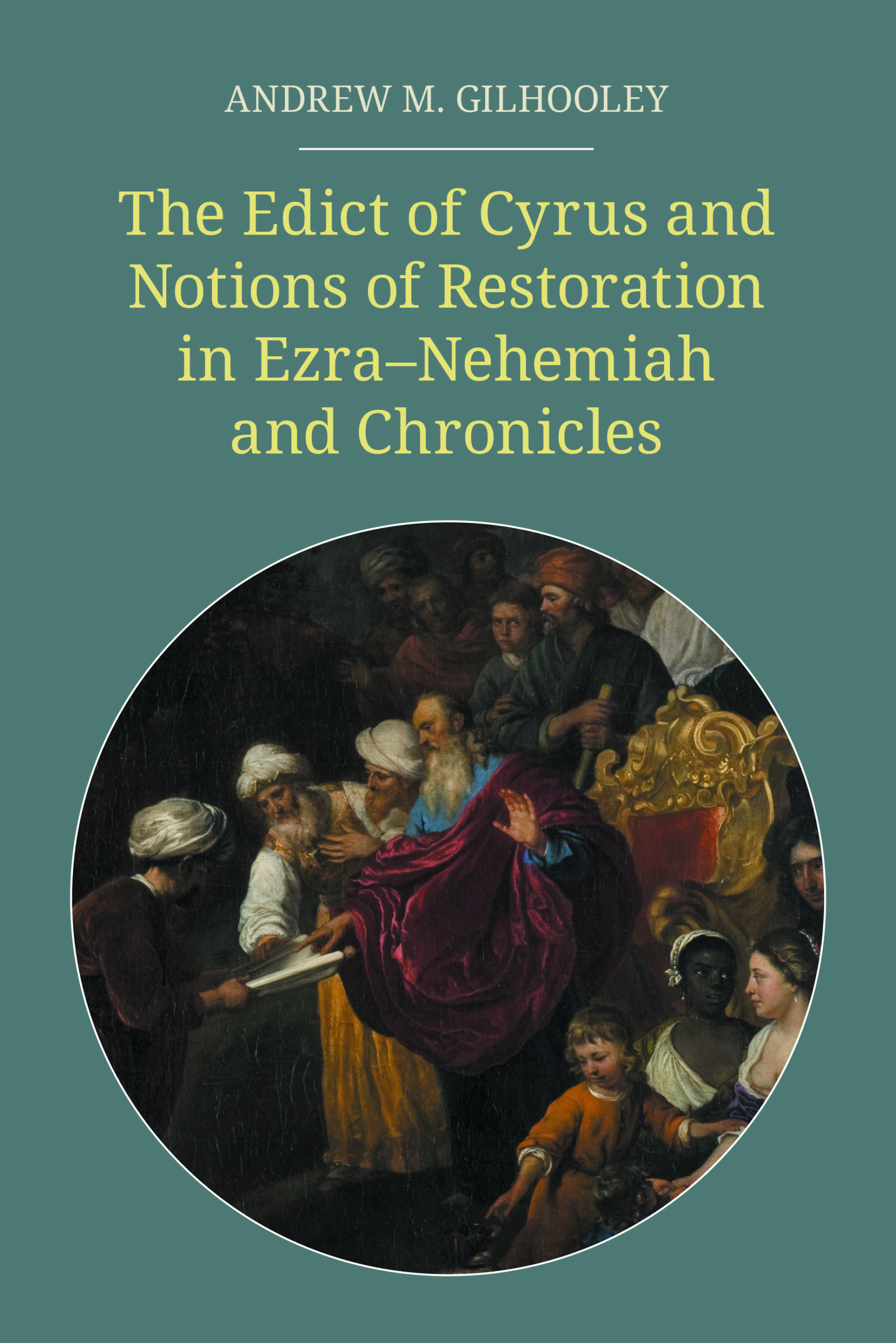
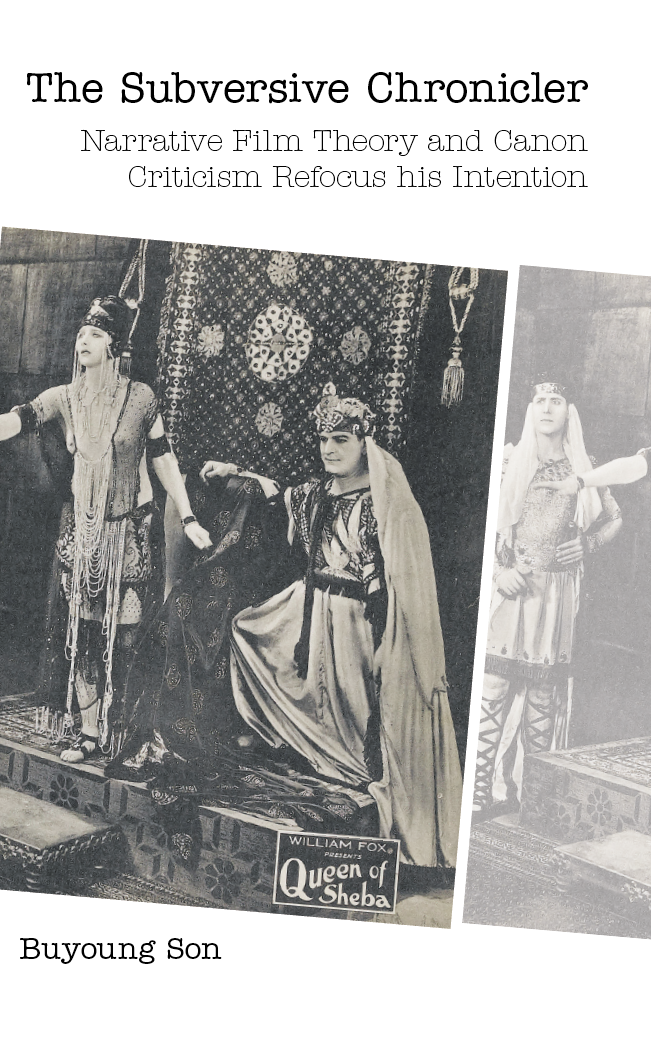
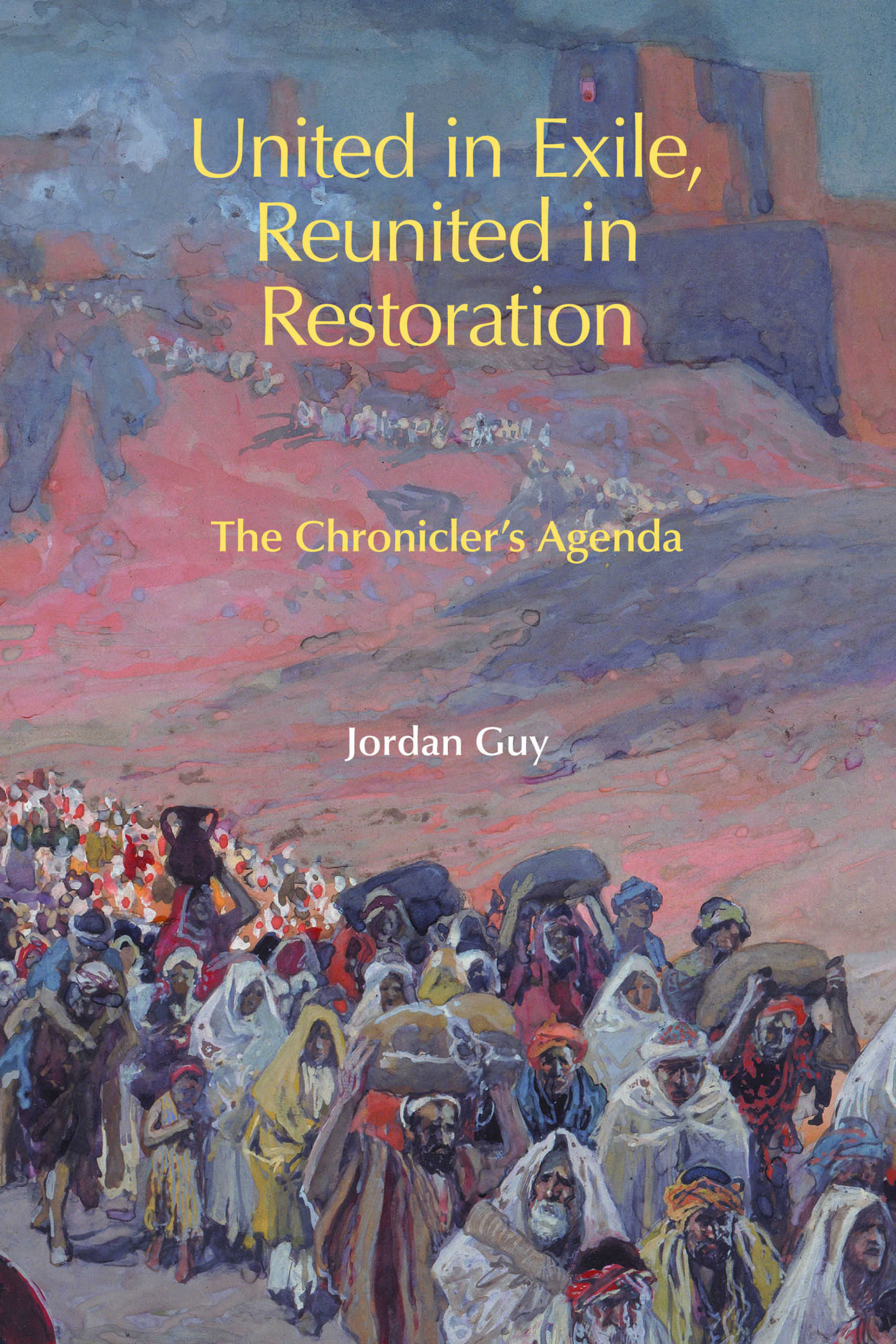
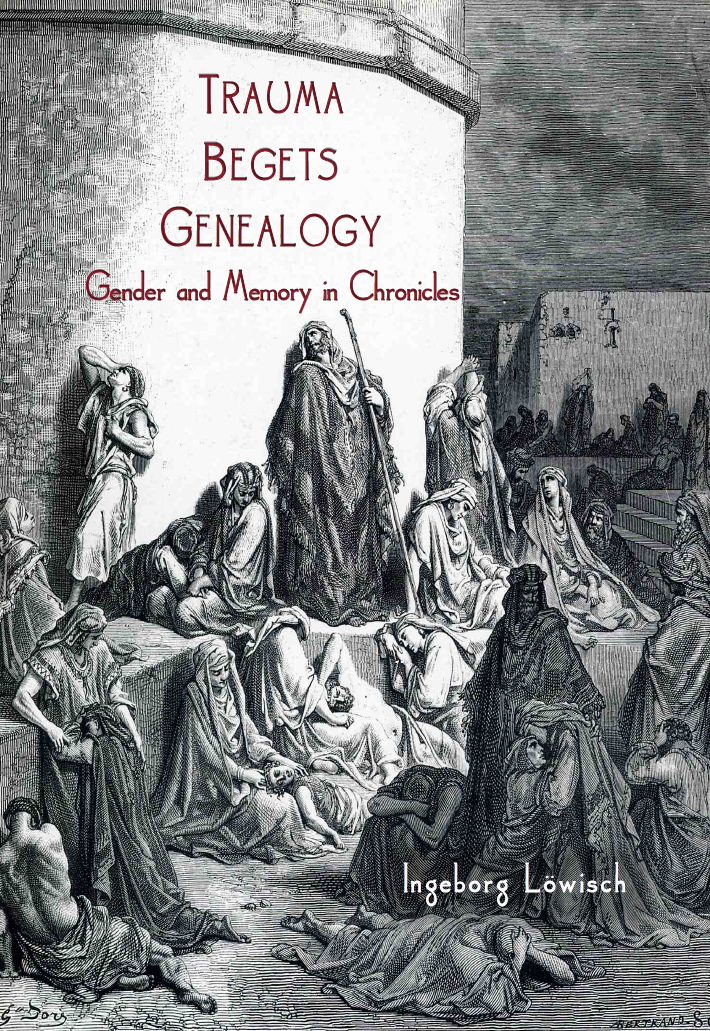


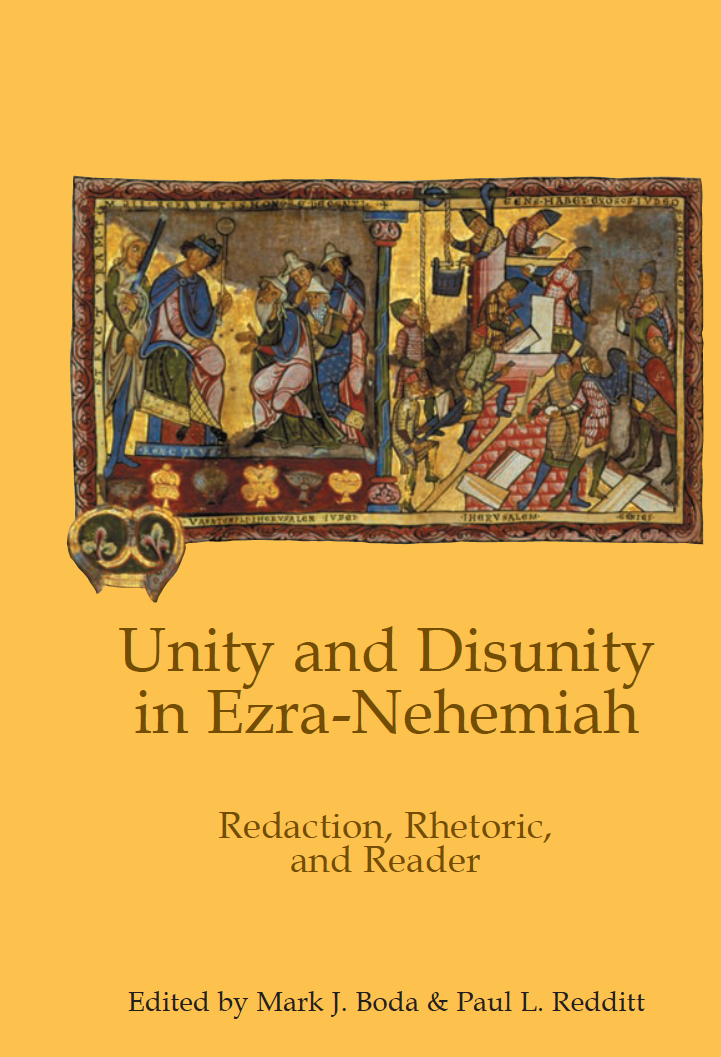
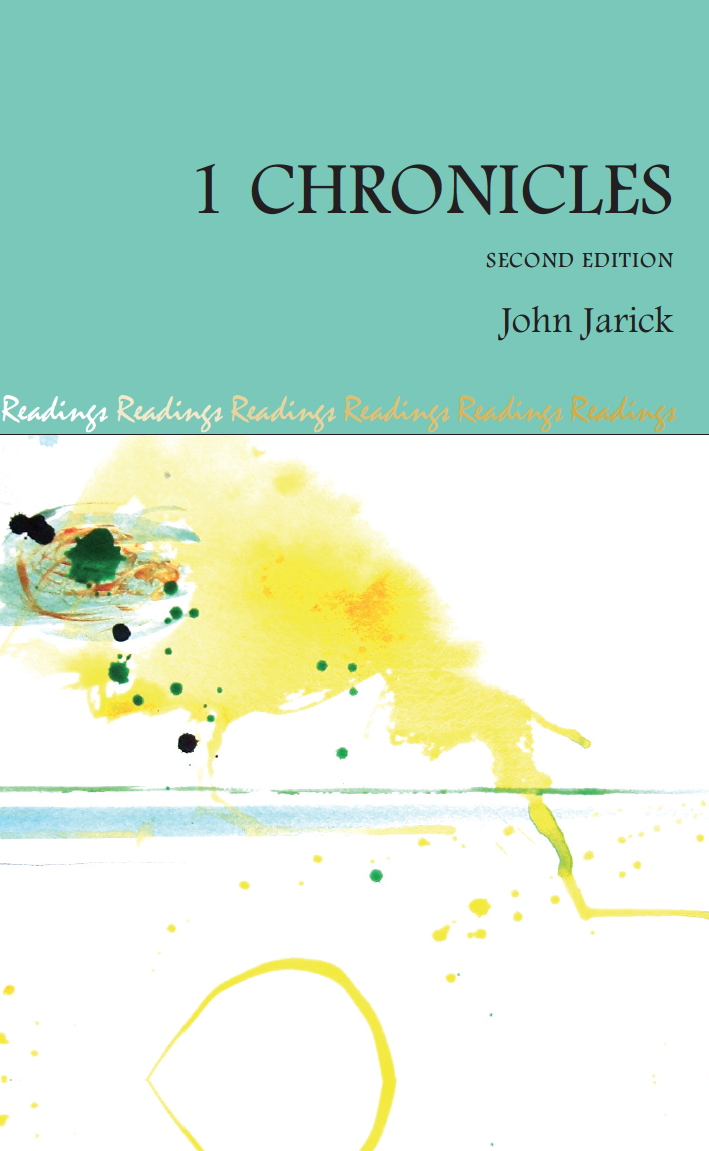
2 Chronicles
2 Chronicles